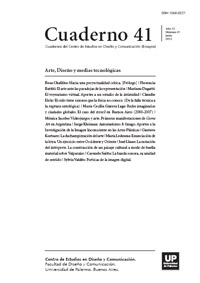La duchampizzación del arte
Abstract
Today more than ever, art grazes our daily life and more than ever we find it extremely diffcult to approach the matter. The problem concerns not only to the occasional public who in a voluntary or an accidental way face a work, but to those that actively participate in the creation and diffusion of said work are immersed in the controversy and they reach to the point of changing the axis of the question and to ask themselves not only about what is art but when there is art. Obviously, none of those questions will be answered in this text that shows briefly, but with precise examples, the complexity of the situation.
References
Hahn, O. (1966). Passport Nº G255300, Art and Artists, n° 4.
Troncy, E. (2008) Commissariat. Magazine. N°43 feb/mar 2008. París.
Danto, A. (1989). La transfiguration du banal. Paris: Seuil.
Díaz, D. (2007) Artista tico envuelto en polémica por muerte de perro en obra. Costa Rica. Periódico Nación. 4 de octubre de 2007. Disponible en: http://www.nacion.com/ln_ee/2007/octubre/04/aldea1263590.html
Guerrin, M. (2001). Entre mémoire et histoire des camps, le rôle de la photographie. Le monde. Paris. 19 de enero de 2001.
d’Ormesson, J. Le Figaro. Paris. 10 de diciembre de 1992. Citado por: Chambon, J. (2002). Prefacio para Fahrenheit 451. Ray Bradbury. Paris: Gallimard.
Recht, R. (2006). De l’œuvre-langage au trop de commentaire? En L’art peut-il se passer de commentaire(s)? Paris: MAC/VAL.
de Samósata, L. (125-180 d.C.). (1841). Dialogues, Satiriques, Philosophiques et Divers Petit Traités.
Paris: Chez Lefèvre-Chez Carpentier. Disponible en: http://aartemodernaeantesedepois.blogspot.com/2008/10/jusqu-ici-tout-ce-que-j-ai-dit-n-est.html
Benchetrit, S. (2007). La plus vieille femme du monde est une débile profonde. En Chroniques de l’asphalte. Paris: Ed. Julliard.
Sarlo, B. (1994). Escenas de la vida posmoderna. Buenos Aires: Seix Barral.
Los autores/as que publiquen en esta revista ceden los derechos de autor y de publicación a "Cuadernos del Centro de Estudios de Diseño y Comunicación", Aceptando el registro de su trabajo bajo una licencia de atribución de Creative Commons, que permite a terceros utilizar lo publicado siempre que de el crédito pertinente a los autores y a esta revista.


